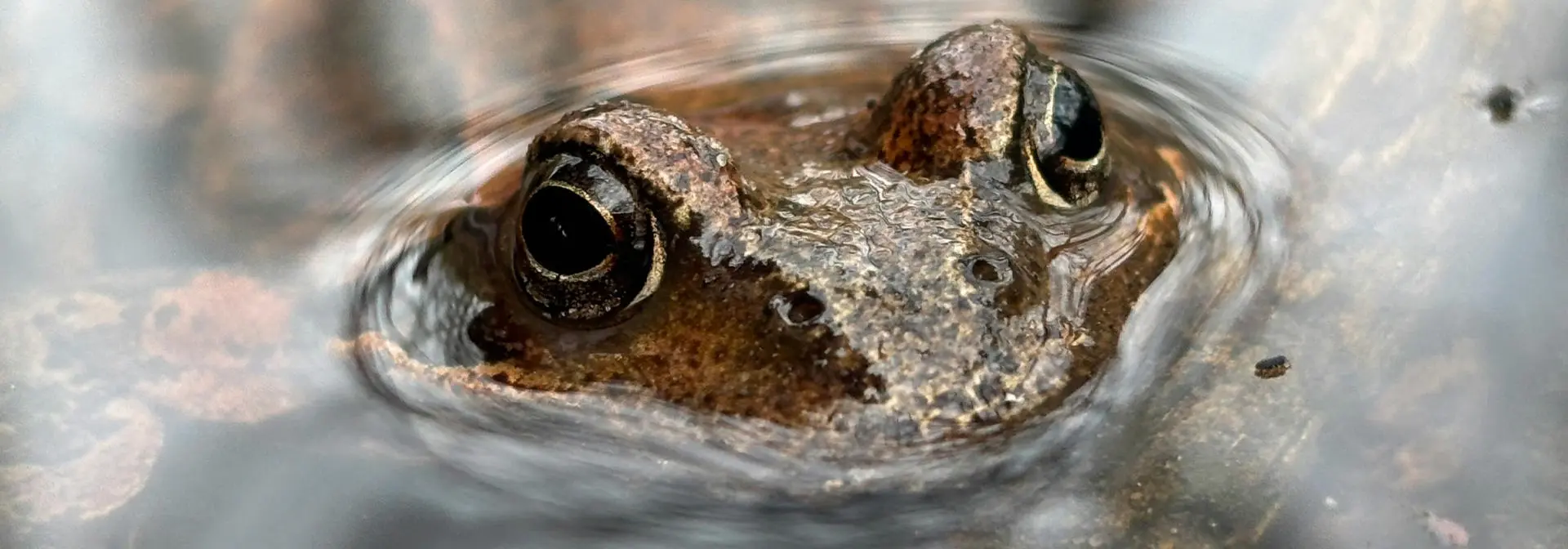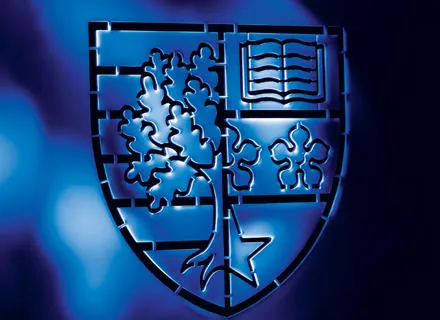Key information
This exciting project aims to investigate both community and individual level responses of amphibians and freshwater molluscs (comprising the most highly threatened vertebrate and invertebrate taxa, respectively) to environmental stressors.
- Funding
- Competition funded (Students worldwide)
- School
- Energy, Geoscience, Infrastructure and Society
- Location
- Edinburgh
- Award
- PhD
- Delivery type
- Full-time
- Supervisor
- Frances Orton
- Closing date
- Friday, 9 January 2026
- Duration
- 44 months
This project is part of the NERC-funded Centre for Doctoral Training, ECOWILD.
For more details, and for a full list of projects offered under this programme, please visit: https://ecowild.site.hw.ac.uk/
Project Description
This project will comprise site selection and optimisation of techniques. For the site selection objective, the work can be split into 3 distinct sampling seasons, which will take part in the Spring of 2027, 2028 and 2029. As ponds are highly heterogenous, initially (2027), a variety of ‘reference’ pond types will be selected, with regards to pollution pressure, in order to collect baseline data on amphibian and freshwater mollusc diversity (eDNA) under ‘non-polluted’ conditions.
These ‘reference’ ponds will comprise ephemeral and permanent water bodies with assumptions for low pollution pressure estimated by surrounding land classifications (e.g., unimproved grassland, native woodland). The geographic scope of the ponds will be limited to Southern Scotland and Northern England, aligning with the location of the partner Institutes.
Moving into the second field season (2028), the site selection will be broadend to include ponds with predicted pollution pressure – confirmed via chemical analysis – with ‘polluted’ ponds matched by geography & pond type with the previously identified ‘reference’ ponds. In this second field seaosn, in addition to diversity monitoring (eDNA), biomarker responses of representative amphibians and freshwater molluscs will be carried out. In the final field season (2029), depending on the initial two field seasons, either a mesocosm approach or further site selection will be carried out, with a greater focus on either ephemeral or permanent ponds to provide more in-depth profiling for one of these broad pond types.
Outwith field sampling timeframes, laboratory analyses of eDNA and oxidative stress/deotoxification responses will be carried out in the laboratory.
What do you need to know
This exciting project aims to investigate both community and individual level responses of amphibians and freshwater molluscs (comprising the most highly threatened vertebrate and invertebrate taxa, respectively) to environmental stressors. In this project, we will work with our partners – Natural England – to identify candidate ponds by analysing data already collected as part of the National Capital Ecosystem Assessment monitoring programme (water quality, amphibian/mollusc diversity). In selected ponds, we will investigate the combined effects of pollutant mixtures and heat waves using field-based and mesocosm approaches. Responses of both communities and ecotoxicological biomarkers (e.g., oxidative stress, detoxification) to these stressors will be assessed.
What expertise and skills will the student develop?
The student will learn how to design and carry out fieldwork in ponds/wetlands, as well as biochemical (oxidative stress) and molecular skills (eDNA, real-time quantitative PCR). The supervisor team will encourage the student to communicate scientific outcomes at seminars, meetings and showcase days.
With the supervisory team across two institutes (Heriot-Watt University, UKCEH) and a governmental department (Natural England), the student will have the opportunity to harness various course offers beyond ECOWILD and expand skills according to needs and interests, e.g., science to policy dissemination, course on scientific writing, project management, R training, fieldwork first aid or data visualisation.
Why is the project novel?
Although there are good data on river water quality and how this relates to invertebrate diversity in the UK and Europe, similar data are scarce for ponds/wetlands. Similarly, there are some good data on amphibian diversity in ponds, however, individual response data for wild amphibians are scarce (as is diversity data for UK ponds/wetlands). In this project, we will add to the diversity data for ponds in the UK – aligning with nationally significant monitoring project methodology to allow comparison and incorporation between data sets – and investigate the impacts on pollutant mixtures and heat waves on these communities. Further, we will produce novel data on biomarker responses in sensitive taxa across a range of pond types, with differing stressor intensities and combinations.
What real-life challenge does it address?
Biodiversity is declining at an alarming rate, with freshwater taxa particularly impacted. These taxa are experiencing various different environmental stressor simultaneously (and sequentially), with pollution only second to habitat loss in driving observed declines. Amphibians and freshwater molluscs are at the forefront of the biodiversity crisis, together comprising the most highly threatened phyla globally (> 40% of species threatened with extinction). This project will help to shed light on the potential causes of these declines, and how ubiquitous stressors interact to drive responses in wild organisms.
Timelines
The closing date for applications is 17:00 BST Friday 9 January 2026, and applicants must be available to start in October 2026.
Project supervisor
Lead Supervisor: Frances Orton (Heriot Watt University)
Stakeholder Supervisor: Graeme Shaw (Natural England)
Co-Supervisor 1: Heidrun Feuchtmayr (UK Centre for Ecology & Hydrology)
Co-Supervisor 2: Theodore Henry (Heriot-Watt University)
For more information on how to apply, please visit the ECOWILD website:
Project specific enquiries: f.orton@hw.ac.uk, General enquiries: ecowild@hw.ac.uk
Entry requirements
Candidate criteria
Eligibility
This project is available to home and overseas students. International candidates may apply but if successful, will need to demonstrate that they (or their supervisory team) have co-funding to cover the difference between home and international fees to be eligible. The difference in fees varies by programme. The current difference for 2025/26 academic year is approximately £20,000 per year.
Applicants typically should have a first or upper second-class honours degree or equivalent in an appropriate subject and preferably a relevant Masters’ qualification or similar experience.
We recognise that not every talented researcher will have had the same opportunities to advance their careers. We therefore will account for any particular circumstances that applicants disclose (e.g. parental leave, caring duties, part-time jobs to support studies, disabilities etc.) to ensure an inclusive and fair recruitment process.
Additional information
Essential Skills:
- Field-based skills
- Laboratory skills
- Communication skills across broad range of stakeholders
English language requirements
If your first language is not English, we'll need to see evidence of your English language ability.
The minimum English language requirement for entry to this programme is IELTS 6.5 (or equivalent) with no score lower than 6.0.
If you do not have IELTS 6.5, we offer a range of English language courses to help you meet the English language requirement for this programme prior to commencing your studies.
For more information about your application and our English Language requirements, please see Section 10 of our page on English Language Requirements as part of your application.
Funding information
This is a full scholarship which will cover tuition fees for Home students and provide an annual stipend in line with UKRI recommended levels (currently £20,780 in 2025-26) for the 44 months duration of the project.
International candidates may apply but if successful, will need to demonstrate that they (or their supervisory team) have co-funding to cover the difference between home and international fees to be eligible. The difference in fees varies by programme. The current difference for 2025/26 academic year is approximately £20,000 per year.
Why Heriot-Watt
We're the top university in Scotland for graduate outcomes which means that more of our graduates are employed or in postgraduate education than any other institution in the country and we ranked 5th in the UK.
We're also rated number one in the UK for CEO or MD roles, meaning more of our graduates go on to become CEOs or MDs than any other university in the whole of the UK. On top of that, we have beautiful campuses, across the globe, so you'll get a truly international education. Our Edinburgh Campus is home to Oriam, Scotland's National Sports Performance Centre combined with plenty of wellbeing resources, prioritising fitness and mental health for all students. Our Global Research Institutes look at solving real world issues such as climate change and saving our oceans as well as working on the next medical technological breakthrough and the future of AI and robots.

